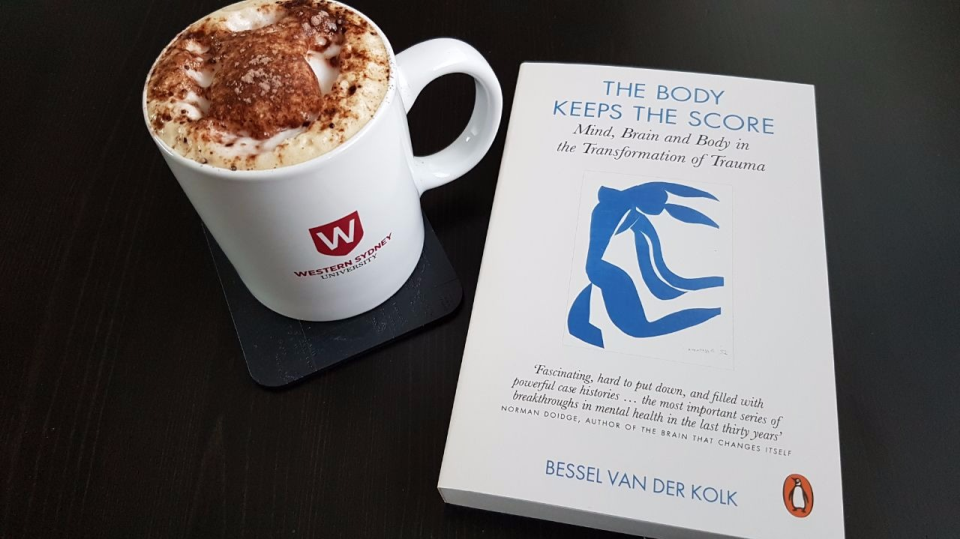The Body Keeps the Score

- Original Title:
- The Body Keeps the Score: Brain, Mind, and Body in the Healing of Trauma
- Author:
- Bessel van der Kolk
- Published:
- 2014
- Buy at:
- bookdepository.com
“The Body Keeps the Score” is psychological book that describes effects of psychological trauma on mind, brain and body and offers new approaches in trauma treatment. Author of this book is Bessel Van der Kolk, psychiatrist, researcher and world renowned trauma expert on traumatic stress. In this book, author writes about trauma’s research, etiology, and treatment.
“The Body Keeps the Score” is divided into five parts. In the first part authors writes about trauma in war veterans, describing some of their experiences. Also, in this part author talks about beginning of neuroscience research and new insights that came with that. Second part of this book explains how brain works during and after traumatic event, and also explains how mind and brain of traumatised event change as a consequence of that. Third part deals with minds of children with emphasis on developmental trauma. Fourth part describes consequences of trauma, while fifth part offers various treatments for healing from trauma.
I have learned so many things from this book about trauma, but also about mind, brain, neural connections, diagnostic manuals, different medicines, research tools. It’s very valuable source for everything related to trauma. Authors supports his claims with results of scientific studies, examples from his patients and from his personal life. I love how author admires his patients for everything that they went through and sees their symptoms as their ways of survival and sees their patients as brave and resilient people. It helped me to understand people better and to try to find explanations for different behaviours.
My favorite part of the book was part with different treatments. Author describes in great detail treatments such as EMDR, yoga, neurofeedback, internal family system therapy and theater. It’s amazing to read how these different treatments can change brain structures and help people heal their psychological wounds. I love how author educates himself in those different treatments in order to help his patients showing that mental health of his patients is the most important. I also love how author writes about different psychiatric drugs and explains why they are still in use even if they are not efficient.
I highly recommend this book especially to psychiatrists, psychologists, psychotherapists, because it offers really important knowledge necessary in working with people. Also, I recommend this book to general public, since it will help in better understanding of our family, friends, acquittances and since it can teach all of us some good practices.
I took many notes while reading this book, but some of my favorite quotes are:
“Without imagination there is no hope, no chance to envision a better future, no place to go, no goal to reach”;
“When you activate your gut feelings and listen to your heartbreak, when you follow the interoceptive pathways to your innermost recesses-things begin to change”;
“Clinicians have only one obligation: to do whatever they can to help their patients get better”;
“As long as we feel safely held in the hearts and minds of the people who love us, we will climb the mountains and cross desserts and stay up all night to finish projects”.





